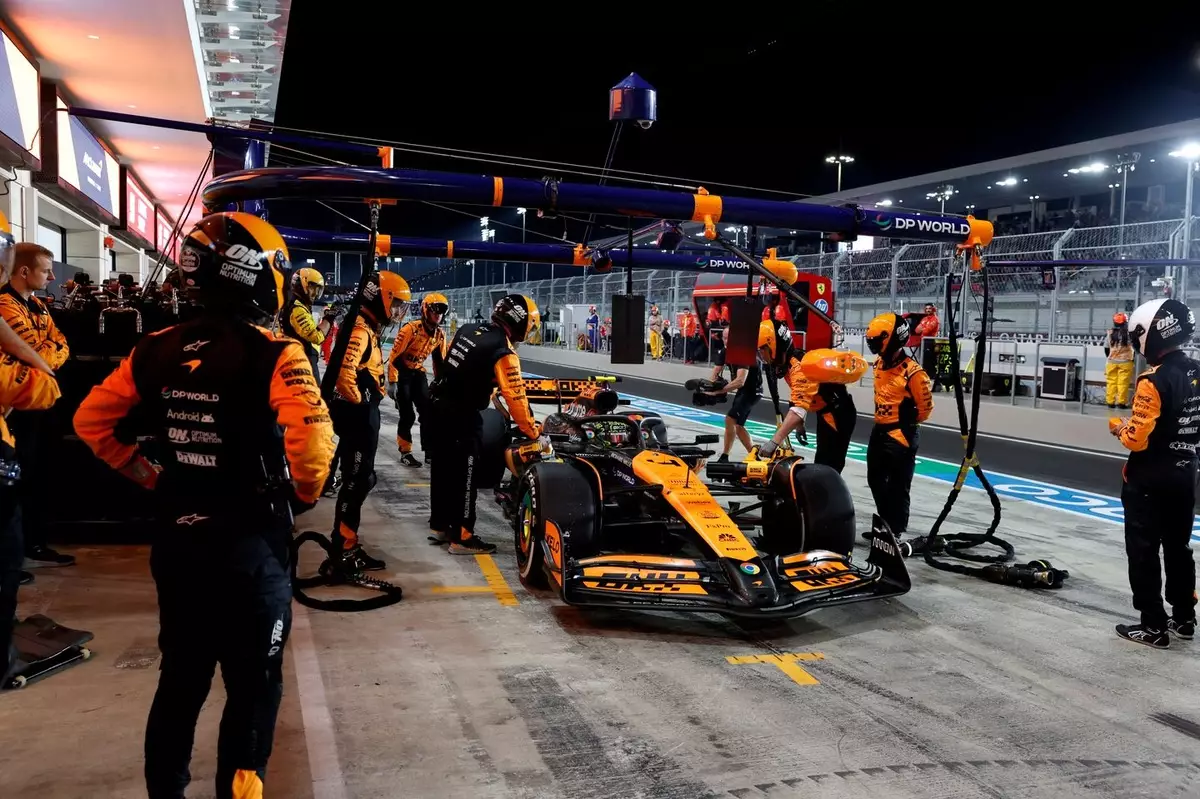The recent events at the Qatar Grand Prix have raised significant concerns regarding the mechanism of penalty enforcement in Formula 1. McLaren, under the guidance of team principal Andrea Stella, has called for a careful examination by the FIA into how penalties are issued, particularly in light of Lando Norris’s severe stop-go penalty. The discourse surrounding this matter not only highlights broader issues of fairness in racing but also poses the question of whether the FIA’s criteria for penalties need a thorough reevaluation.
The Context of the Incident
During the Qatar GP, Lando Norris found himself facing a ten-second stop-go penalty after failing to reduce his speed in accordance with the double yellow flags that had been displayed due to Alex Albon’s car issues. While acknowledging that Norris did not adhere to the flag regulations, Stella expressed his worries regarding the disproportionate nature of the penalty in relation to the offense. He insisted that such severe punishments could dramatically influence the championship dynamics and called into question the fairness of such strict enforcement.
Stella’s admission of Norris’s mistake reflects an important aspect of sportsmanship—acknowledging faults while also advocating for reasonable consequences. However, his assertion is that the punishment meted out does not align proportionally with the violation and may represent an overreach that could have severe implications across the sport.
Stella articulated a clear demand for the FIA to reassess not just this particular instance but the entire process that governs penalty decisions. He emphasized the necessity for specificity and proportion when sanctions are applied to maintain a level playing field within the competition. The question raised here revolves around the FIA’s operational methods and whether they have become antiquated, leading to what some observers may describe as ‘overly punitive’ measures.
In illustrating the need for change, Stella ironically suggested that it felt as though someone had dusted off an old book of rules to administer penalties arbitrarily, highlighting a potential disconnect between the interpretation of rules and the practical implications for teams and drivers alike. This sentiment reflects a broader unease within the community, as teams and drivers alike strive for consistency in how the rules are applied, particularly during such high-stakes competitions.
The potential implications of inconsistent penalty enforcement expand beyond McLaren and Norris. Mercedes team principal Toto Wolff echoed these sentiments by condemning the harshness of the penalties across the board, notably including Lewis Hamilton’s own drive-through penalty for speeding behind the safety car. The fear is not only confined to individual races but also stretches to the very fabric of championship standings. As pointed out, overly severe penalties have the capacity to derail even the most strategically sound campaigns.
The ramifications of the FIA’s approach touch on elements that could dictate the trajectory of drivers’ careers and teams’ futures in Formula 1. Such moments prompt the need for steadfast examination of how decisions made in the heat of competition can inadvertently alter the course of races and championships. Inadequate consideration of context, as highlighted by McLaren, may result in future penalties that exacerbate tensions among racing teams and fans alike.
A Trust in the FIA’s Governance
In balancing their criticisms with respect, McLaren has opted not to delve into specific changes regarding the FIA’s personnel or management. Instead, they have signaled a hopeful trust in the organization’s ability to fairly evaluate its decisions. This trust, however, does rely on the FIA demonstrating a willingness to evolve and respond to the intricate dynamics of modern racing.
Stella’s comments serve as a reminder that while enforcement of rules is necessary to maintain order and safety in the sport, it is equally important to ensure that penalties are fair and justified. The murmurs from teams like McLaren and Mercedes indicate a collective call for a more nuanced and consistent approach to sanctioning which will uphold the integrity of Formula 1 racing. Only through reflection and reform can the FIA hope to maintain trust and satisfaction among all participants in this prestigious motorsport.

